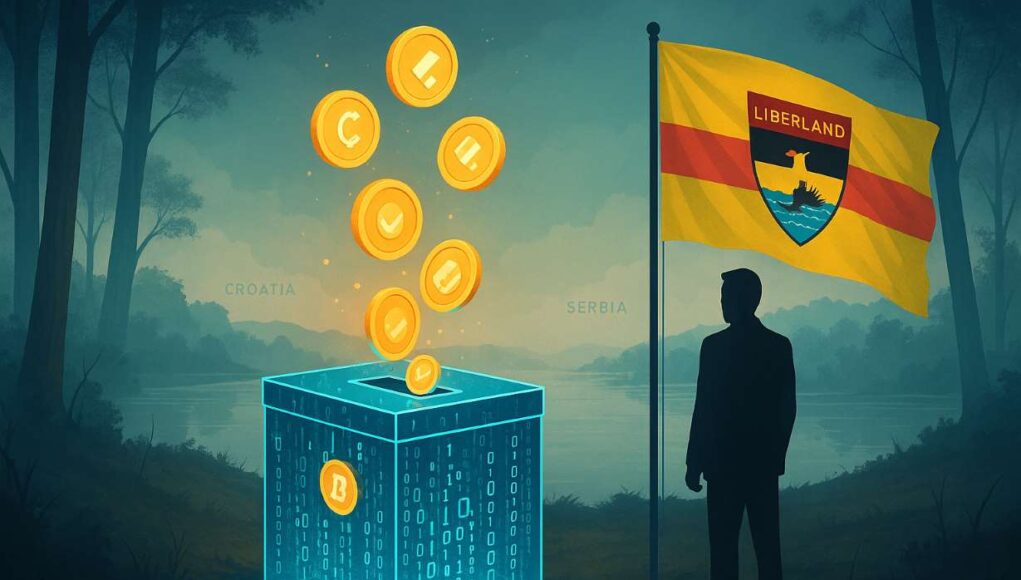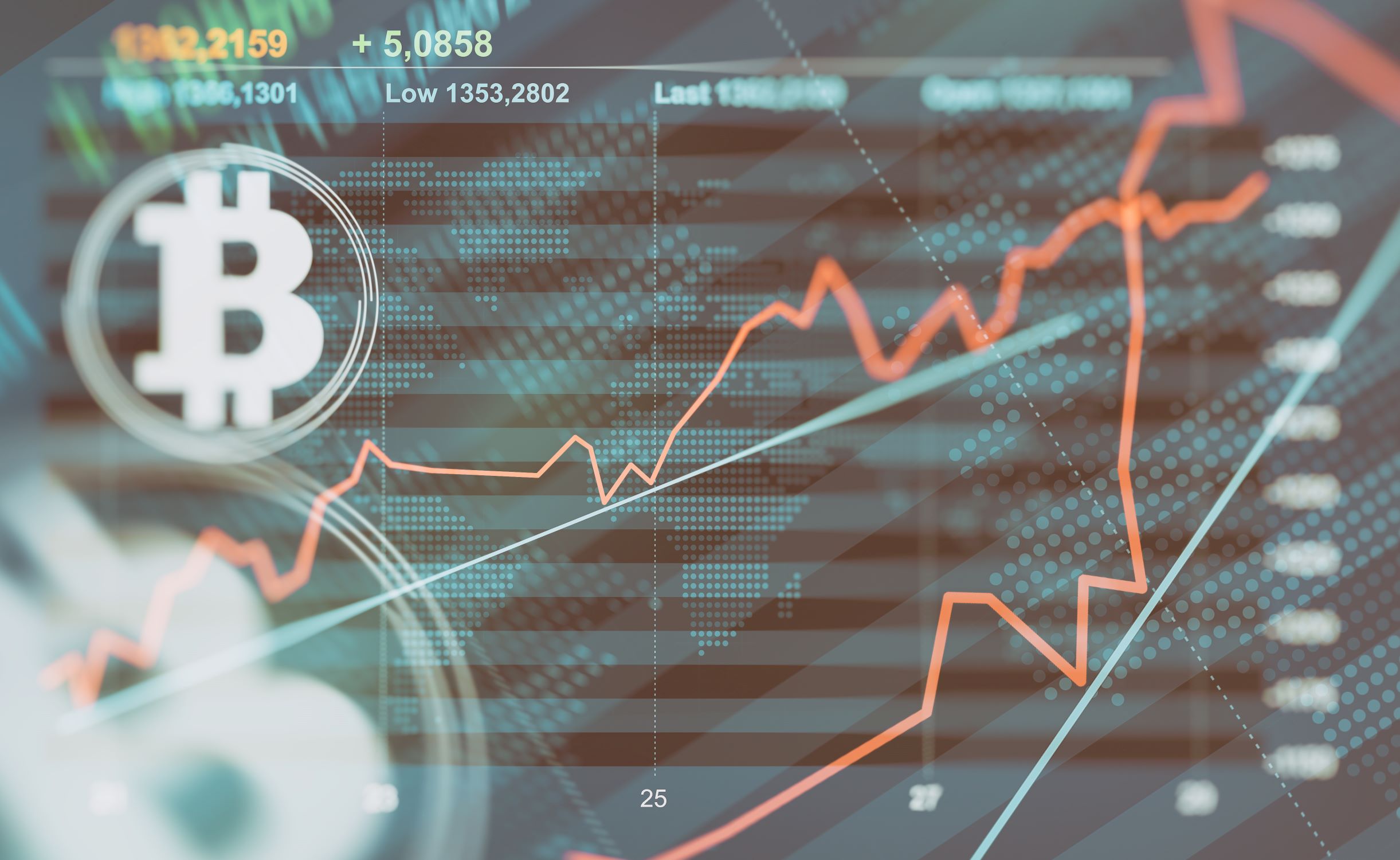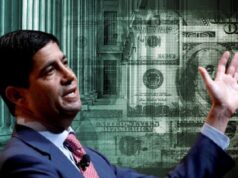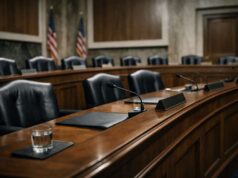In an era where blockchain is rapidly redefining finance, identity, and governance, one micro-nation is pushing the envelope even further. On July 3, 2025, Liberland, a self-declared country on a sliver of land between Croatia and Serbia, will hold its next blockchain-powered election. This will be the latest in a series of elections aiming at legitimizing blockchain-based democratic models.
Editor’s Note – July 5, 2025: We updated this article to reflect the official results of Liberland’s July 3, 2025 blockchain election. Jump to the update.
At the center of this initiative is Justin Sun. His leadership in Liberland, as Prime Minister, places him squarely at the heart of this political experiment. As the micro-nation prepares for another round of blockchain voting, the world is watching, not necessarily to validate the results, but to understand whether Liberland’s digital experiment has any practical relevance for crypto governance.
What Is Liberland?
Czech libertarian activist Vít Jedlička proclaimed Liberland in 2015 on a 7 km² parcel of disputed territory known as Gornja Siga, located on the western bank of the Danube River between Croatia and Serbia. The land sits in a border dispute zone that emerged after the breakup of Yugoslavia. Serbia maintains the Danube as the international border. Croatia insists on historical cadastral lines that technically exclude the area from its territory. However, Croatia actively controls the land and has repeatedly arrested Liberland activists for trying to settle there. It asserts that the territory is not terra nullius but part of a broader unresolved border negotiation.

Governance futurists and digital sovereignty advocates watch Liberland’s process closely, as it is one of the few real-world examples of micro-nation elections. It operates under a libertarian ideology: voluntary taxes, minimal government interference, no gun control, and full economic freedom. It has no official infrastructure, no permanent residents, and has yet to establish relationships with other sovereign nations. Still, it claims over 1,000 active citizens and nearly 800,000 applications for citizenship, all managed through blockchain-based systems.
How Blockchain Voting Works in Liberland
The upcoming Liberland election will run entirely through blockchain voting systems, using digital tokens both as credentials and as a voting mechanism. The system promises blockchain transparency, with every vote recorded immutably, publicly, and without the need for traditional oversight.
Votes are weighted based on Merits, a blockchain-based contribution score. Only those who have voluntarily paid taxes or contributed to the system earned voting rights, emphasizing Liberland’s ideology of decentralized governance and self-responsibility.
While still rudimentary, the blockchain technology behind these elections demonstrates how crypto governance could disrupt traditional democratic institutions. It removes intermediaries and introduces tamper-proof verification mechanisms. Liberland’s electoral process also showcases the potential for blockchain security in elections, particularly in regions where institutional trust is low.
Justin Sun’s Involvement: Visionary or Opportunist?
When Liberland’s Congress elected Justin Sun Prime Minister in late 2024, it raised eyebrows across the crypto world. Sun is a crypto billionaire, known for founding the TRON blockchain, his high-profile acquisitions (BitTorrent, Poloniex), and legal troubles, including accusations of market manipulation and fraud.
His involvement in Liberland is not merely symbolic. Sun has used the position to lobby for recognition, expand Liberland’s global profile, and deepen its alignment with the crypto industry. He is actively shaping crypto governance ideals. His critics argue that Justin Sun’s crypto ambitions may outweigh his diplomatic motives. They say he is using Liberland as a testbed for unregulated financial engineering.
Can Blockchain Democracy Work?
The concept of blockchain democracy, where citizens vote, make laws, and participate in governance via blockchain platforms, is appealing, especially to libertarians and technocrats. Liberland presents a rare real-world example of this model in action.
- Decentralized governance eliminates centralized corruption.
- Immutable ledgers provide unmatched election security.
- Citizens are digitally empowered through smart contracts and transparent systems.
But there are glaring limitations:
- Liberland has no physical schools, hospitals, or infrastructure.
- Its population is largely virtual.
- Blockchain voting systems assume digital literacy and access.
- There is no defense, trade policy, or diplomatic legitimacy.
Blockchain democracy in Liberland exists in a vacuum. It is unburdened by the need to provide public goods or enforce laws.
International Scrutiny and Legal Gray Zones
Recent reports have highlighted the growing entanglement between Liberland, crypto billionaires, and political actors, most notably the Trump family. Investigations allege that Sun’s investments in U.S.-based crypto ventures may have bought him access to U.S. political circles. Liberland acts as a diplomatic cover for those ambitions.
Legal experts warn that Sun, as a de facto foreign leader, could trigger Emoluments Clause violations. This would occur if U.S. officials benefit financially from ties to Liberland. If the micro-nation gains even informal recognition, it could create a jurisdiction rich in loopholes similar to offshore tax havens.
This paints a troubling picture. Blockchain governance, in the wrong hands, can be weaponized not for democracy but for deregulated self-interest.
A Glimpse into the Future or a Libertarian Fantasy?
Liberland’s upcoming blockchain election is not just a quirky experiment; it’s a test case. It explores whether decentralized, crypto-based governance can function without the pillars of traditional statehood: borders, institutions, and public accountability.
For blockchain advocates, Liberland offers a proof of concept for a new form of blockchain democracy and digital sovereignty. For critics, it’s a crypto utopia built on contradictions. A nation without people, a democracy without services, a government without governance.
>>> Read more: 10 Unconventional Blockchain Uses You’d Be Surprised About
The July 3 blockchain election in Liberland may not reshape global politics, but it will challenge our understanding of what a nation is, what governance can be, and how blockchain for democracy may play a role in the future of crypto governance.
Whether Liberland becomes a model or a cautionary tale, one thing is clear: the intersection of crypto, governance, and sovereignty is no longer theoretical. It’s unfolding, in real time, on the blockchain, and in a forested patch of land no one else wanted.
Post-Election Update: What Happened on July 3
Liberland’s blockchain election on July 3, 2025, was completed in a matter of seconds; literally. The micronation’s digital voting system processed ballots instantly, highlighting what its leadership describes as a “flawless” demonstration of blockchain-enabled governance. However, the process continues to draw criticism for its lack of transparency: no individual vote counts, turnout data, or detailed results have been made public.
The new Congress roster suggests continuity over change. Justin Sun remains in place as Prime Minister, reaffirmed by Congress rather than by a visible public vote. Other elected or returning members include Evan Luthra, Jillian Godsi, Ivan Pernar, and Dorian Štern Vukotić. They are all known figures in crypto or libertarian political circles. The election reinforced Liberland’s commitment to fast, token-based digital democracy, though it left observers with familiar concerns: Is this governance innovation or just a symbolic exercise?
While the execution was undeniably fast, the opacity of Liberland’s on-chain voting continues to raise questions about accountability, inclusivity, and real-world relevance.











[…] experimenting with blockchain-based government, is a compelling example. Liberland employed blockchain in its July 2025 elections to promote openness, justice, and trust in democracy. This use case demonstrates how blockchain can […]